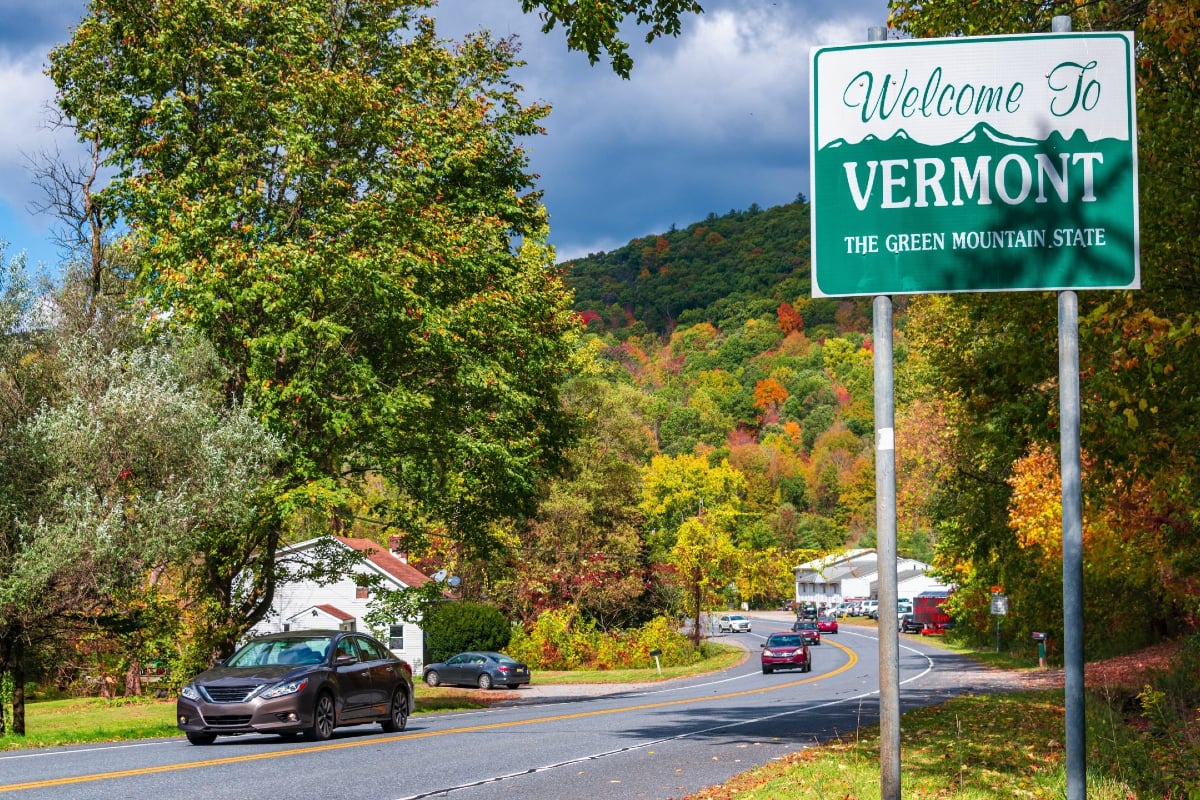Vermont Sports Betting Committee Pitches Regulatory Suggestions, 20 Percent Tax
Posted on: October 19, 2022, 11:30h.
Last updated on: October 19, 2022, 01:04h.
The Vermont Sports Betting Study Committee is floating some ideas as to what the sports wagering industry might look like in the Green Mountain State. That’s if lawmakers choose to legalize such gaming.

Things move a little slower in Vermont. That’s why, more than four years after the US Supreme Court ruled that states have the right to determine their own laws on sports gambling, Vermont is only now moving forward with discussions to possibly legalize and regulate the industry.
The Sports Betting Study Committee said during its October 18 meeting that it will likely propose to the Vermont Legislature that a minimum of two and a maximum of six online sportsbook operators be authorized.
The committee has also recommended that the state levy a 20% tax on gross mobile sports betting revenue.
Attractive Conditions
More than 30 states have authorized sports betting, with at least 26 allowing for bets to be facilitated over the internet. In those states that allow mobile sports wagering, the online option has dominated in-person wagering.
Vermont doesn’t have any commercial or tribal casinos, so its sports betting market is expected to be conducted entirely online. The Sports Betting Study Committee said it’s still mulling whether to support some sort of retail component, such as standalone sports betting kiosks inside certain businesses.
There’s an awful lot of people who aren’t comfortable with computers,” said state Sen. Dick Sears Jr. (D-Bennington) during Tuesday’s meeting.
Andrew Winchell, director of governmental affairs for FanDuel, told the committee that an excessively high tax would render Vermont unattractive.
“If the market conditions aren’t appealing, then quality operators will simply not participate,” Winchell commented. “The loss of quality operators means capturing less of the thriving illicit offshore market and less of the current activity across the border to neighboring states with legal and regulated sports betting.”
Vermont is bordered by New York, Massachusetts, and New Hampshire. Sports betting, both retail and online, is legal in each state, though operations haven’t yet begun in Massachusetts.
The average online sports betting tax in the states with mobile operations up and running is 20.3%. The highest tax is in New Hampshire, New York, and Rhode Island at an effective rate of 51%. The lowest is in Nevada and Iowa at 6.75%.
Societal Concerns
Vermont, like many other states, is battling an opioid crisis. The state counted a record 210 fatal opioid overdoses last year, which eclipsed the state’s previous record of 158 overdose deaths, set just in 2020.
This is a social proposition that we have to take very seriously,” state Rep. Tom Stevens (D-Waterbury) said in July about allowing another so-called “sin industry” entry into Vermont. The state began allowing recreational marijuana sales earlier this month.
The Vermont Legislature is adjourned for 2022. Sports betting is expected to be an early topic in Montpelier when lawmakers convene in January 2023.
Related News Articles
Vermont Sports Betting Study Committee Recommends Legalization
Vermont Sports Betting Bill Introduced to Allow Online Wagering
Most Popular
LOST VEGAS: ‘Tony The Ant’ Spilotro’s Circus Circus Gift Shop
Las Vegas Overstated F1 Race’s Vegas Impact — Report
Mega Millions Reportedly Mulling Substantial Ticket Price Increase
Las Vegas Strip Stabbing Near The Strat Leaves One Man Dead
Most Commented
-
End of the Line for Las Vegas Monorail
— April 5, 2024 — 90 Comments -
Mega Millions Reportedly Mulling Substantial Ticket Price Increase
— April 16, 2024 — 8 Comments -
Long Island Casino Opponents Love New York Licensing Delays
— March 27, 2024 — 5 Comments -
Sinclair Broadcast Group Selling 7.91 Million Bally’s Shares
— April 12, 2024 — 4 Comments
















No comments yet